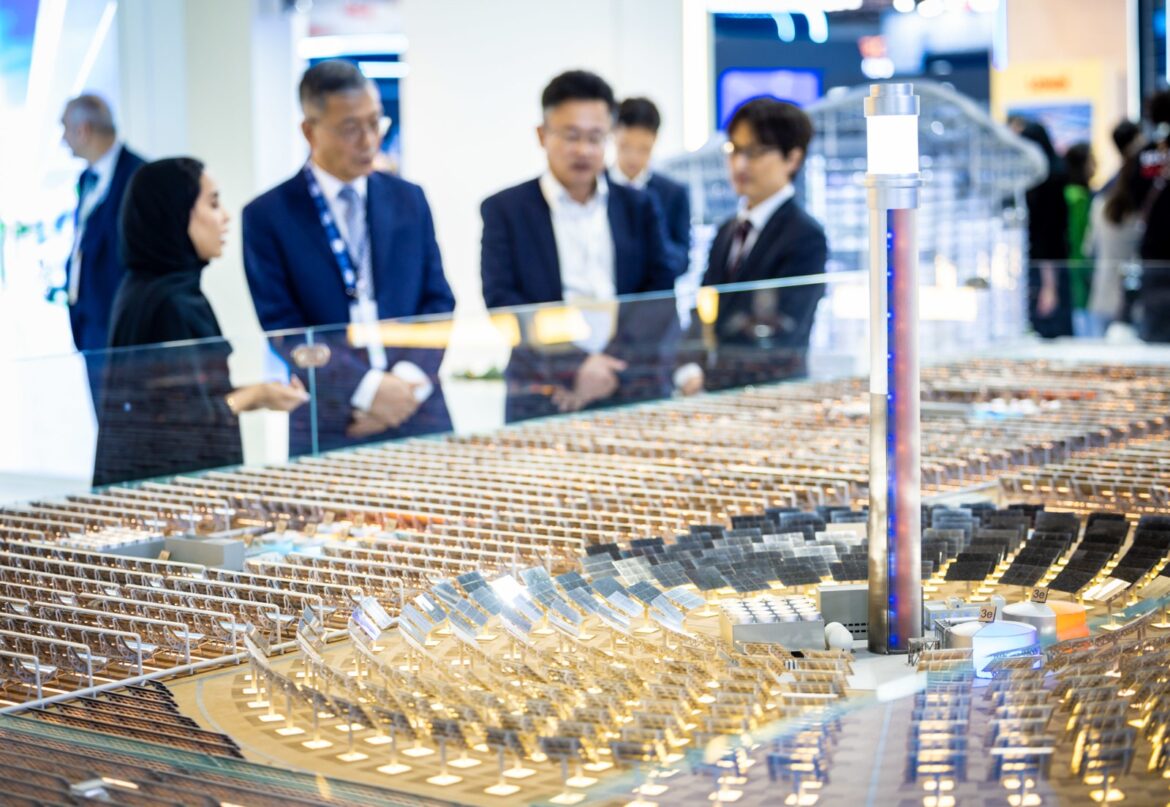The 16th edition of the World Future Energy Summit wrapped up today, having witnessed thousands of sustainability, energy, transport, and urban planning professionals descend on Abu Dhabi National Exhibition Centre (ADNEC) for the event’s final day.
The third day saw the event’s focus switch to eMobility and Smart Cities, with a dedicated eMobility Forum hosting a quartet of sessions exploring everything from the impact of autonomous transport and the importance of enhancing stakeholder collaboration to the UAE’s progress on its 2030 new energy vehicle (NEV) sales target.
In the opening panel session, forum attendees explored aerial autonomous vehicles in the Emirates, while another session presented a study on the indigenisation of the EV value chain in Pakistan’s two- and three-wheeler transport segment.
Elsewhere, speaking at the dedicated Smart City Forum, Chris Wan, Associate Director of Sustainability and CSR at Masdar City, explained that a people-first approach to sustainable master planning is poised to evolve the design, infrastructure, and functionality of future cities and urban communities.
The EU-GCC Cooperation on Green Transition Project was also announced, which aims to create a joint platform to exchange best practices and expertise between the EU and GCC stakeholders. It was shared that it will promote and adopt policies and technologies that support the Gulf’s green transition, and foster a collaborative business environment between EU-based green tech companies and their GCC counterparts.
The launch featured keynote addresses from Her Excellency Lucie Berger, Ambassador of the European Union to the United Arab Emirates; Lukasz Kolinski, Head of Unit Renewables and Energy System Integration at the European Commission; and Tarig Ahmed, Regional Programme Officer – MENA Region at IRENA.
“I strongly believe the EU-GCC Cooperation on Green Transition Project is timely and acts as a pivotal initiative to enable renewable energy solutions and encourage regional collaboration,” said Ahmed.
“This project is an essential milestone towards achieving a sustainable future for the GCC region and, ultimately, for our planet.”
This year’s Summit also hosted numerous dedicated areas championing innovation across the startup ecosystem, including the Green Hydrogen Innovation Zone, the Masdar Innovation Zone, and the Climate Innovations Exchange (CLIX) initiative. The latter was a curated platform for 22 female-led, run, or founded startups and SMEs to demonstrate their products and solutions to investors and the wider industry.
UAE-based startup Food to Fertiliser highlighted a range of custom machines that use patented dehydration technology to convert food and other organic waste into nutrient-rich fertiliser.
Food to Fertiliser leveraged the WFES to seek investment for an initial manufacturing run of its new Food Cycler product – a consumer-friendly unit intended for residential use, it was shared.
As the event wrapped up, Leen AlSebai, General Manager of RX Middle East and Head of the World Future Energy Summit said: “The post-COP28 mandates, and what action is needed to deliver on promises made, especially around the Pathway to 1.5C, was very much at the forefront of discussions over the past three days. We have seen some incredible partnerships cemented at the event that will aid the world’s journey to tripling renewables by 2030 and beyond.
“I would also like to thank the industry at large for its unwavering dedication this week, given the unprecedented weather seen across the country. Our international participation has increased by 55 per cent over last year and our speaker faculty has grown to more than 350 speakers, highlighting the importance of our expanded Forum line-up this year,” added AlSebai.



